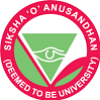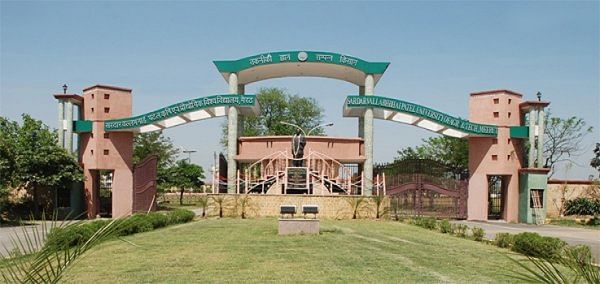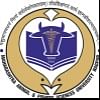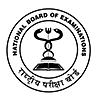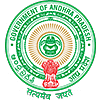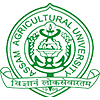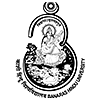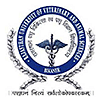BVSc Syllabus and Subjects

The BVSc syllabus can be divided into ten semesters. The course, along with core subjects in the semester, even includes other specializations for further skill development. The BVSc course covers topics such as animal nutrition, animal breeding, genetics, animal pathology, etc. And since the BVSc job scope is really high, employment opportunities are available both in India and abroad.
Semester wise BVSc Syllabus
The BVSc course consists of core and elective subjects. Depending on the university/college, they may differ slightly. It has two parts -a compulsory set of courses covering all foundation areas in veterinary science and many elective courses that aim to build job-specific skills and knowledge. The BVSc course aims to ensure that the students are able to do jobs of their choice. The semester wise courses are as follows:
BVSc First Year Syllabus
| Semester I | Semester II |
| Osteology | Myology |
| Scope and Importance of Biochemistry | Demonstration of Embalming of the Carcass and Preservation |
| Introduction and Importance of Statistics | Muscle Physiology |
| Veterinary Anatomy in General and Osteology | Sense Organs and Receptors Physiology of Special Senses |
| Livestock in India | Enzymes: Definition and Classification |
| Introductory Animal Husbandry | Importance of Grasslands and Fodders In-Livestock Production |
BVSc Second Year Syllabus
| Semester III | Semester IV |
| General Histology | Gross Morphological and Topographical Study of Various Organs of the Digestive System |
| Parasites and Parasitism | Spermatogenic Cycle and Wave |
| Introduction and Scope of Veterinary Pathology | Biochemical and Genetic Determinants of Growth |
| Indian Poultry Industry | The Biting Midges |
| Factors Affecting the Digestibility of a Feed | Introduction and General Description of Protozoa |
| - | Concepts in Veterinary and Medical Immunology |
BVSc Third Year Syllabus
| Semester V | Semestre VI |
| Historical Development Branches and Scope of Pharmacology | Veterinary Neuropharmacology |
| General Pathology of Viral Infections | Systematic Veterinary Virology |
| Milk Hygiene in Relation to Public Health | Avian Pathology |
| Milk Industry in India | Aquatic Animal Diseases, Hearth Care and Management |
| Layout and Management of Rural, Urban and Modern Abattoirs | Veterinary Epidemiology and Zoonosis |
| Concept of Sociology | Meat Science |
| - | Animal Biotechnology |
| - | Livestock Economics |
BVSc Fourth Year Syllabus
| Semester VII | Semester VIII |
| Veterinary Chemotherapy | Veterinary Toxicology |
| Anaesthesiology And Diagnostic Imaging | Regional Veterinary Surgery |
| Veterinary Gynecology | Veterinary Obstetrics |
| Veterinary Clinical Medicine - I | Veterinary Clinical Medicine - II |
| Veterinary Preventive Medicine - I | Veterinary Clinical Biochemistry and |
| Veterinary Clinical Biochemistry and Laboratory Diagnosis - I | Veterinary Clinical Practice |
| Veterinary Clinical Practice | Veterinarian in Society |
BVSc Fifth Year Syllabus
| Semester IX | Semester X |
| Veterinary Orthopedics and Lameness | Internship |
| Animal Welfare, Ethics & Jurisprudence | - |
| Zoo/Wild Animal Breeding, Management, Nutrition and Health Care | - |
| Pet Animal Breeding Management, Nutrition and Health Care | - |
| Veterinary Andrology and Reproductive Techniques | - |
| Environment and Environmental Hygiene | - |
| Livestock Entrepreneurship | - |
BVSc Subjects
The BVSc subjects taught in the course are mostly similar for all the colleges, but it varies depending on the institution's course module. But, the overall subjects are pretty similar but put in a different order, depending on the teaching method. Overall, the course makes them have a peculiar way of learning veterinary science and giving an experience in animal treatment training and care.
Core Subjects
- Comparative Osteology And Arthrology
- Comparative Splanchnology
- Myology, Angiology, Neurology, and Anesthesiology of Ox
- Theory and Practice of Histological and Histochemical Techniques
- General Histology and Ultrastructure
- Principles and Applications of Biomechanics
- Microbiology
- Public Health and Epidemiology
- Livestock Production Management
- Animal Nutrition
- Animal Anatomy
- Veterinary Physiology
Elective Subjects
- Animal Nutrition
- Veterinary Pathology
- Animal genetics and breeding
- Introduction and Importance of Statistics
- Muscle Physiology
- Indian Poultry Industry
- General Histology
BVSc Course Structure
The BVSc course syllabus is designed in a way that the course mainly includes various systems of animals. All this consists of the bones, joint tissues, muscles, the different stages of pregnancy, and many more. This field sharpens a student's mind to tackle the daily obstacles faced in their workplace, studies & other similar aspects. The course involves subjects that include factors like:
- Practical/Record
- Core Subjects
- Elective Subjects
- Internship
BVSc Teaching Methodology and Techniques
BVSc is a course focusing on different aspects of veterinary science and animal breeding. The course is designed based on requirements and helps get the most exposure to the field, and the BVSc course subjects deal with the same. Therefore, learning strategies have varying implications for courses.
- Assignments/Viva-voce
- Following course module books
- Research work
- Internships
When the course ends, the student would be a professional with experience from the entire course.
BVSc Projects
The BVSc project, known as a mini-thesis, is a compulsory project for the students to complete at the end of their semester. Students should regard their projects as an ideal opportunity to integrate what they have learned during the BVSc program and apply it to their future working profession.
Some of the project topics are
- Livestock Movements and Disease Epidemiology in Chad Basin: Modeling Risks for Animals and Humans
- Foot-and-Mouth Disease Ecology and Livestock Movement in the Chad Basin
- The Effects Of Trypanosoma Brucei Infection On Reproduction In Female Pigs
- Dog Ecology And the Epidemiological Studies Of Canine Rabies In Lokoja, Kogi State, Nigeria
BVSc Reference Books
BVSc course is the one meant for the specialization in the field of Veterinary Science. The topics taught in the course module are very much enough. But, to get a deep or in-depth knowledge, there are certain books published by the -authors, who have opened up about their thought process, and thus helps in being more skilled and knowledgeable about veterinary science and writing, which are a significant part of BVSc Subjects.
| Name | Author |
| Clinical Procedures in Small Animal Veterinary Practice | Richard J. Aspinall and Victoria Aspinall |
| Veterinary Pharmacology and Therapeutics | Jim Riviere |
| Textbook of Veterinary Microbiology | S. C. Adlakha and S. Sharma |
| Handbook of Veterinary Obstetrics | Peter Jackson |
| Handbook of Veterinary Drugs | Dale A. Smith, Dana G Allen, and John K. Pringle |



